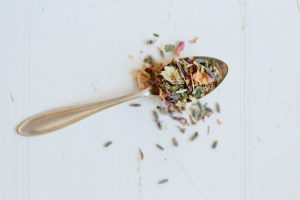The Naturopathic Co.

You're using an outdated browser. Please upgrade your browser to improve your experience.
SPEED READ>>
It’s important to continually renew and rebalance the body in order to maintain optimal health and wellbeing. A key means of supporting the body in healthy renewal is by focusing on the reduction of inflammation. This can be achieved through the Mediterranean diet, which incorporates whole foods, and is rich in vegetables, fruits, nuts, fish, whole grains, and olive oil. It contains prebiotics, fibre, and is high in antioxidants and omega 3 fatty acids.
It’s rare for a true dietary breakthrough to take place, fad diets come and go, however the Mediterranean diet is based on research from the 1950s showing that specific eating patterns from areas around the Mediterranean such as Italy, were associated with lower rates of cholesterol and heart disease.
Inflammation is a natural process, a protective mechanism, and the body’s response to infection, illness or injury. As part of this inflammatory response, the body increases production of white blood cells and immune cells in order to fight the infection or virus. This type of inflammation is part of the immune system’s healing response to trauma or infection, and classic signs of acute inflammation include redness, pain, heat and swelling.
However, there’s a second more hidden type of inflammation which is called chronic inflammation which persists ongoing, and sometimes at such low levels that there are few symptoms. In fact, it can occur without any noticeable symptoms at all.
Inflammation is linked to almost every illness or health disorder. The Mediterranean anti-inflammatory diet has shown positive results in treatment of cardiovascular disease and atherosclerosis (Casas 2014), type 2 diabetes (Koloverou 2016), Alzheimer’s, and arthritis (Oliviero 2015).
The foods we consume have a huge impact in either fueling our inflammation or cooling it down. Substances found in some foods, such as antioxidants and omega-3 fatty acids, have anti-inflammatory effects on the body. For people who struggle with chronic inflammation, or illness of any kind, making key dietary choices can make a real difference.
The anti-inflammatory diet is what our cells would ask for in order to cool our inflammation. It is the type of food that our body thrives on. The focus is on which foods have a nurturing, balancing, healing, and calming effect on the body. This type of ‘diet’ has also been associated with sustained weight loss, improved metabolism and assimilation, and also leads to greater energy and vitality.
The anti-inflammatory diet incorporates whole foods, and is rich in vegetables, fruits, nuts, fish, whole grains, and olive oil. It contains prebiotics, fibre, and is high in antioxidants and omega 3 fatty acids.
Inflammation is worsened by processed food, preservatives, additives, sugar, excessive salt, and trans fats.
The following foods should be minimised or removed completely:
Sugar, sugary drinks, fruit juices (with the exception of pomegranate juice, sugar free cranberry juice, freshly squeezed orange juice).
Refined carbohydrates and processed grains (white pasta, bread, biscuits, chips, cakes, grains) which leads to insulin resistance, diabetes, and obesity.
Processed meat
Processed oils, such as vegetable oils, margarines, and trans fats all promote inflammation and damage arteries.
Excessive intake of alcohol also has an inflammatory affect on the body
The Mediterranean diet has been shown in lab tests to reduce inflammatory markers such as CRP. As part of the Mediterranean diet, what most people need to increase greatly is fibre. Trillions of microbes within the intestines live on fibre, and the more you give from all kinds of vegetable sources, the lower your risk of inflammation.
Base your diet on whole, nutrient-dense foods that contain antioxidants. Antioxidants work by reducing levels of free radicals. You can read more about antioxidant intake here.
Your anti-inflammatory diet should provide a healthy balance of protein, carbohydrates and healthy fat at each meal.
High antioxidant vegetables: Broccoli, kale, brussels sprouts, cabbage, cauliflower, artichokes, spinach, collard greens, sweet potatoes
High antioxidant fruit: Focus on deeply coloured berries such as cherries, grapes, blueberries, raspberries, and blackberries. Apples, avocados, olives.
Healthy fats: Olive oil (uncooked), small amounts of coconut oil, oily fish such as salmon, herring, mackerel, sardines, anchovies, as well as flaxseeds, walnuts, almonds, pecans, hazelnuts, and chia seeds.
Dark chocolate: At least 80% and minimal/no added sugar.
Herbs and spices: Turmeric, fenugreek, ginger, cinnamon, garlic, basil, oregano, parsley, thyme, rosemary.
Tea: Green tea, hibiscus, rosehip, rooibos, sage, lemonbalm, ginger, peppermint.
Red wine: 3 glasses per week.
Yvette is a qualified Melbourne-based Naturopath and Nutritionist, MINDD Practitioner, member of the Naturopaths and Herbalists Association of Australia, and Complementary Medicine Association. Yvette specialises in the treatment of conditions commonly affecting women and children, with a key interest in children’s digestive and neurological conditions, as well as women’s hormonal concerns, digestive issues, fatigue, anxiety, and skin concerns. Yvette consults in South Yarra, Melbourne, as well as Australia-wide via skype/zoom/phone.
References
https://www.ncbi.nlm.nih.gov/pubmed/24925270
https://www.ncbi.nlm.nih.gov/pubmed/26104243
https://www.ncbi.nlm.nih.gov/pubmed/26523418
Disclaimer; We do not aim to diagnose, treat, cure or prevent any illness or disease. Information on this site is shared for educational purposes only. You must consult with a health care practitioner before implementing any information or treatments from content found on this wellness blog or website. This is of the utmost importance if you are pregnant, breastfeeding, taking prescription medication, or have a medical condition.
The Naturopathic Co. Melbourne Naturopath 2020
Comments are closed.